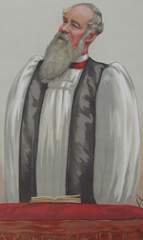Hi my love,
Remember the other night when you said that you don't know if you believe that the Genesis account and other stories are just spiritual illustrations teaching us a cosmic lesson, instead it is less confusing and right to believe that these stories are literal? Well, you are right. When does one stop taking things as figurative and start taking it literally? You could take it all the way from Genesis to Revelation figuratively if you wanted to, but then where is truth in that? One could read Aesop's Fables and get a good lesson from it. I think it is right to think that when the Bible is figurative it is blatantly figurative, and when it is literal, it is blatantly literal.
Also, if you'll think about it, there is NO harm in playing it safe and believing less, or the bare minimum, but there is harm in believing heresies or stories as truth. So, take, for instance, a Baptist, who believes that the early church was simple, independent, having only a bishop (pastor or shepherd) and deacons like the New Testament says, and believes in "believe in the Lord Jesus Christ and you will be saved". Then they meet together, sing hymns, pray together and hear the word preached, and lead holy lives. They stick only to what the Bible says. There is no harm in this. How could there be?
On the other hand, some church traditions treat their church traditions as if they have been there since the beginning. Sometimes these people begin to worship the idea of the church instead of the Lord. Then, as is evident in Catholicism and Orthodoxy, traditions such as the assumption of Mary, purgatory, intercession of saints, indulgences, immaculate conception and other doctrines become something that you MUST believe to avoid being a heretic. What does that do with the early church people who didn't believe in these doctrines? Make them heretics?
About Apostolic Succession and Apostolic Churches, I realize the purpose behind it, to ensure that godly men were put in place after the death of the previous bishop, but it took on a different form, becoming almost like a magical transmission of truth and power. That's not the case. Apostolic Succession never secured the church from error, and has never perfectly preserved the truth, has it? Any man who has a great knowledge of the Bible and leads an upright life can effectively teach the Scriptures to others and be their pastor. Truth is preserved in men who love God and desire truth, not in the laying on of hands.
Also, I have seen a lot of liturgical churches that have the scripture verse, "worship the Lord in the beauty of holiness" above a picture of an altar, or vestments or something. I think they are reading that verse backwards. I think that they may be reading it as "worship the Lord in the holiness of beauty". Beauty is not holiness to the Lord. Holiness, however, is beauty to the Lord. Holiness can be as homely as a dirty man in rags who loves God with all his heart, mind and strength and who loves his neighbor as himself, and who watches the words that comes out of his mouth, who helps the orphans and widows, who keeps himself unspotted from the world, who confesses his sins and repents, placing his trust in God and His Son. On the other hand, there are MANY people who have beautiful churches and wear beautiful vestments who molest children, or are very proud of themselves, who wear huge mitres upon their heads. Jesus slept on the streets and probably wore the same humble clothes for most of his adult life.
Love you,
Paul
Wednesday, August 05, 2009
Subscribe to:
Post Comments (Atom)

















No comments:
Post a Comment